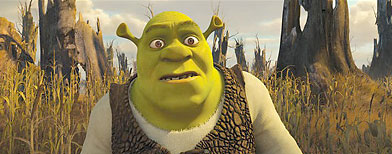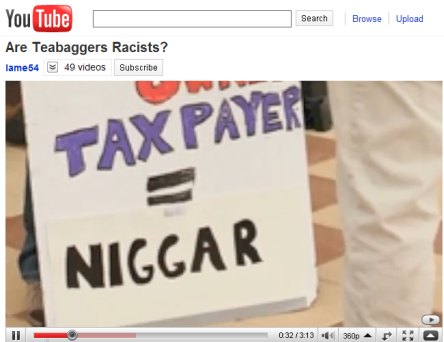 Let's see if we got this straight.
Let's see if we got this straight. You can go to jail for making a porn flick but it's alright to torture an animal and videotape it.
Not bad enough that they forced property owners to sell out in the interests of economic development or intervened in Bush vs. Gore to stop the 2000 recount that might have found that Al Gore actually won.
Tuesday, the Supreme Court decided that the Constitution protects animal abusers who torture dogs and record their violence for sale as videos because a law Congress passed in 1999 against animal cruelty was written too vaguely, and could have been used to outlaw hunting videos. In an 8-1 decision, Chief Justice John Roberts wrote:
The First Amendment's guarantee of free speech does not extend only to categories of speech that survive an ad hoc balancing of relative social costs and benefits. The First Amendment itself reflects a judgment by the American people that the benefits of its restrictions on the government outweigh the costs. Our Constitution forecloses any attempt to revise that judgment simply on the basis that some speech is not worth it.
And the lone hold-out? Might surprise you. It was Samuel Alito, one of the arch conservatives on the court. Rebutting the majority's view that the law was too broad, Alito argued it could still be used to stop crush videos, which apparently appeal to some people's sexual fetish by showing women in stiletto heels crushing animals to death.
"The First Amendment protects freedom of speech, but it most certainly does not protect violent criminal conduct, even if engaged in for expressive purposes," he wrote.
Question to legal experts: does this mean the court would find constitutionally permissible a crush video depicting people being tortured to death on video on grounds the law was written too vaguely?
Now that President Obama has a new Supreme Court nomination to make, maybe he can consider naming someone with more sensitivity to the souls of animals. First Dog Bo would probably wag his tail at that.
The Supreme Court, with only one dissenting vote, on Tuesday struck down a federal ban on videos that show graphic violence against animals. The ruling cheered free speech advocates, but it raised concerns that more animals will be harmed.
The justices threw out the criminal conviction of Robert Stevens of Pittsville, Va., who was sentenced to three years in prison for videos he made about pit bull fights.
The law was enacted in 1999 to limit Internet sales of so-called crush videos, which appeal to a certain sexual fetish by showing women crushing to death small animals with their bare feet or high-heeled shoes.
The videos virtually disappeared once the measure became law, the government argued. The Bush administration used the law for the first time when it indicted Stevens in 2004.
All 50 states have laws against animal cruelty, but the federal statute targeted the videos because it has been difficult to prosecute people who take part in violence against animals with a camera rolling, but not showing their faces.
Chief Justice John Roberts, writing for the majority, said the law goes too far. He suggested that a measure limited to crush videos might be valid.
A lawmaker said he was moving immediately on Roberts' suggestion. Rep. Elton Gallegly, R-Calif., said he is introducing legislation as early as Tuesday that would focus narrowly on crush videos. He said the bill would have bipartisan support and noted that the 1999 law passed both houses of Congress overwhelmingly and quickly worked.
"There aren't too many thing you pass around here that actually work as well as this has," Gallegly said.
In dissent, Justice Samuel Alito, a dog owner himself, said the harm animals suffer in dogfights is enough to sustain the law. Alito's dog, Zeus, a springer spaniel, is sometimes seen around the court being walked by Alito's wife, Martha-Ann.
Alito also said the ruling probably will spur new crush videos because it has "the practical effect of legalizing the sale of such videos."
Wayne Pacelle, president of the Humane Society of the United States, said hundreds of crush videos appeared on the Internet after a federal appeals court ruled in Stevens' favor in 2008. "This court ruling is going to accelerate that trend. That's why it's critical that the Congress take action," he said.
Other animal rights groups, including the American Society for the Prevention of Cruelty to Animals, and 26 states also joined the Obama administration in support of the law. The government sought a ruling that treated videos showing animal cruelty like child pornography — that is, not entitled to constitutional protection.
But Roberts said the law could be read to allow the prosecution of the producers of films about hunting. And he scoffed at the administration's assurances that it would only apply the law to depictions of extreme cruelty.
"But the First Amendment protects against the government," Roberts said. "We would not uphold an unconstitutional statute merely because the government promised to use it responsibly."
Free speech advocates praised Tuesday's ruling.
"Speech is protected whether it's popular or unpopular, harmful or unharmful," said David Horowitz, executive director of the Media Coalition. The group submitted a brief siding with Stevens on behalf of booksellers, documentary film makers, theater owners, writers groups and others.
Stevens ran a business and Web site that sold videos of pit bull fights. He is among a handful of people prosecuted under the animal cruelty law, none of them for making crush videos. He noted in court papers that his sentence was 14 months longer than professional football player Michael Vick's prison term for running a dogfighting ring.
A federal judge rejected Stevens' First Amendment claims, but the 3rd U.S. Circuit Court of Appeals in Philadelphia ruled in his favor.
The administration persuaded the high court to intervene, but for the second time this year, the justices struck down a federal law on free speech grounds. In January, the court invalidated parts of a 63-year-old law aimed at limiting corporate and union involvement in political campaigns.
The case is U.S. v. Stevens, 08-769.
More on the Supreme Court's "Crush Videos" Decision I still have a problem with how Michael Vick goes to jail for dogfighting as well he should and a guy videotaping those kinds of events and selling them for profit gets off the hook. The again Vick is black the sleazeball is white.
I still have a problem with how Michael Vick goes to jail for dogfighting as well he should and a guy videotaping those kinds of events and selling them for profit gets off the hook. The again Vick is black the sleazeball is white.
Robert Stevens [pictured to the right], a producer of dogfight videos, may have joined the ranks of Jay Near, the anti-Semitic journalist; Larry Flynt, the flamboyant pornographer; and Clarence Brandenburg, the Ku Klux Klan rabble rouser — all of whose highly unpopular expressions led to major pro-First Amendment decisions by the Supreme Court.
In its decision yesterday in United States v. Stevens, the Court by an 8-1 vote reversed the conviction of Stevens and struck down the law used to prosecute him — a federal law that criminalized creating, selling or owning certain depictions of animal cruelty. Writing for the majority, Chief Justice John Roberts called the law a “criminal prohibition of alarming breadth.”
Whether the decision has the lasting resonance of Near v. Minnesota (1931), Hustler v. Falwell (1988) or Brandenburg v. Ohio (1969), won’t be clear for years.
But for now, it stands as a remarkably strong 21st-century embrace of traditional First Amendment legal principles, replete with statements that may be invoked in a range of future cases. One of those cases may come as soon as this fall, when the Court will hear Snyder v. Phelps, involving speech that may, if possible, be even less popular than videos depicting animal cruelty: namely, offensive protests at funerals of U.S. soldiers.
“Our decisions … cannot be taken as establishing a freewheeling authority to declare new categories of speech outside the scope of the First Amendment,” wrote Chief Justice John Roberts for the majority.
Another key quote from Roberts: “The First Amendment itself reflects a judgment by the American people that the benefits of its restrictions on the Government outweigh the costs. Our Constitution forecloses any attempt to revise that judgment simply on the basis that some speech is not worth it.”
The 10-year-old federal law at issue in the case was aimed at the growing market, especially on the Internet, of so-called “crush videos,” showing the killing of helpless animals in ways that appeal to the prurient interests of purchasers. But the law defined its target broadly, outlawing depictions of intentional killing or maiming of animals if the conduct violated laws of jurisdictions where they were sold, created or possessed. It exempted depictions with serious religious, scientific, educational, journalistic, historical or artistic value.
Stevens was indicted in Pennsylvania under the statute for his videos of pit bulls and dog fights that he claimed had educational value. A federal judge upheld the law and Stevens was found guilty, but the 3rd U.S. Circuit Court of Appeals said the statute was unconstitutional.
The high court agreed with the appeals court, and sharply criticized the government's defense of the law. In its brief, the Obama administration had said that a balancing test assessing “the value of the speech against its societal costs” could be used to determine if a category of speech belongs inside or outside the protection of the First Amendment.
“That sentence is startling and dangerous,” Roberts wrote. The First Amendment, he said, does not protect only speech “that can survive an ad hoc balancing of relative social costs and benefits.”
Roberts embraced traditional overbreadth doctrine and offered examples of just how broadly the statute sweeps. He asserted that owning hunting videos or magazines made for entertainment would be a crime nationwide because hunting is illegal in Washington, D.C. The law, he said, would also ban the depiction of the humane — not cruel — killing of certain animals because that, too, can be illegal, such as in the case of killing endangered species.
The Court also dismissed as irrelevant the government’s pledge to apply the law narrowly to depictions of extreme cruelty. “This Court will not uphold an unconstitutional statute merely because the Government promises to use it responsibly,” Roberts wrote.
The decision won quick praise from First Amendment advocates. “It’s great to hear from the chief justice that speech is protected whether it has great value, or not so great value,” said David Horowitz, executive director of the Media Coalition, which filed a brief on behalf of filmmakers, photographers, booksellers and others worried about the scope of the law.
Roberts, Horowitz said, “hasn’t written many opinions implicating the First Amendment,” so the fact that the chief justice assigned the decision to himself and endorsed long-standing First Amendment doctrine was gratifying.
Patricia Millett, Stevens’ lawyer before the Supreme Court, said, “It was quite telling that eight members of the Court found the law alarming.”
“We should all push harder” to combat animal cruelty, she said, “but we should target the act itself, not the act of talking about it.”
Gene Schaerr, who wrote a brief for the Cato Institute also siding with Stevens, said, “Although one may debate the importance of public expression with regard to cruelty to animals ... the government's effort to remove any area of public expression from the First Amendment's protection would have been highly troubling.”
“Whatever one might think of Mr. Stevens and his films, the threat to filmmakers had to be removed,” said Michael Donaldson, lawyer for independent filmmakers who joined a brief in the case. “Many an important documentary would be foreclosed. Others would not even be made because of filmmakers’ fear of prosecution.”
Justice Samuel Alito was the sole dissenter, arguing that the law had a “substantial core of constitutionally permissible applications,” namely crush videos and dogfighting videos.
The majority did leave open the possibility that a much narrower law targeting crush videos might pass constitutional muster.
Humane Society vice president and chief counsel Jonathan Lovvorn seized on that possibility in reacting to the high court decision.
Congress would be on safe ground if it redrafted the law to cover specifically “staged animal cruelty that is actually connected to a crime,” Lovvorn said. “I expect something to be introduced in Congress in short order.”
The world is turned upside down - I'm agreeing with Alito!














 A radical Islamic website warned the creators of "South Park" that they could face violent retribution for depicting the Prophet Muhammad in a bear suit.
A radical Islamic website warned the creators of "South Park" that they could face violent retribution for depicting the Prophet Muhammad in a bear suit.
 I still have a problem with how Michael Vick goes to jail for dogfighting as well he should and a guy videotaping those kinds of events and selling them for profit gets off the hook. The again Vick is black the sleazeball is white.
I still have a problem with how Michael Vick goes to jail for dogfighting as well he should and a guy videotaping those kinds of events and selling them for profit gets off the hook. The again Vick is black the sleazeball is white.




















